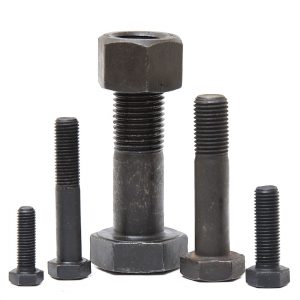A bolt is a threaded fastener with an exterior male thread that requires a nut with a matching pre-formed female thread. Bolts and screws have a lot in common. Many people make the mistake of thinking that bolts and screws are the same , which is not exactly the case. There is a difference in bolts and screws.
A bolt is a non-tapered fastener that holds items together with a washer and nut. A screw is a tapered fastener that revolves and either mate with an existing thread or produces its own thread in the material.
There are 28 different types of bolts. There are different bolts to choose from. They vary in use depending on their shape, head type, and size.
As we know bolts are very important, and failure of bolts can often cause horrible accidents and incidents which can claim multiple lives.
Bolt and bolted joint failure, in particular, can be a major source of concern for engineers. To determine if the joint can withstand the forces applied to it, assumptions are established. A single bolted joint failure can have severe effects for the reliability and safety of bolted connections, and this failure can occur as a result of any of the following five mechanical failures. We should know about these failures so precautionary measures can be taken to avoid bolt failures.
Failures of 5 Mechanisms:
- The preload on the bolt is insufficient to withstand the imposed forces.
- Internal or exterior threads are stripped of their threads.
- Bolt failure due to fatigue.
- The applied force has immediately overloaded the bolt.
- Bearing stress that is too high under the nut face, bolt head, or within the joint itself.
Inadequate Joint Clamping Force:
The clamping force created by the torquing or tensioning of bolts is used by the majority of bolted joints to withstand the applied forces.
The presence of a gasket in a joint to prevent leaking is only effective if the bolts provide enough clamp force to allow for efficient sealing. As a result of the clamping force generated by the bolts, forces applied to the joint are transmitted through friction, resulting in a secure bolted connection.
Bolt Overload:
Bolt overload occurs when the applied force is too great, creating excessive pressure on the bolt leading the bolt to fail owing to overload also as a result of erosion in bolt. This occurs as a direct result of the axial force applying on the bolted joint, forcing the bolt to fracture in the threaded area. To avoid this Quality Bolts should be used.
Excessively Bearing Stress:
Bolts are often made of high-strength steels that produce a strong clamping force on the joint when fully tightened. The high bearing stress is concentrated in the area right beneath the bolt head or nut face. It often de-shapes the bolt threading causing in bolt failure.
These are a few major reasons of bolt failures and how to avoid them and precautionary measures can be taken to avoid bolt failures. It is very important because bolt failures can cause damage alot claiming materialistic loss and even human lives. Quality Bolts should be used and if you are looking one of the top quality bolts in Pakistan, visit the website below:
https://royalhardware.com.pk/product-category/bolts-screws-and-fixing/

